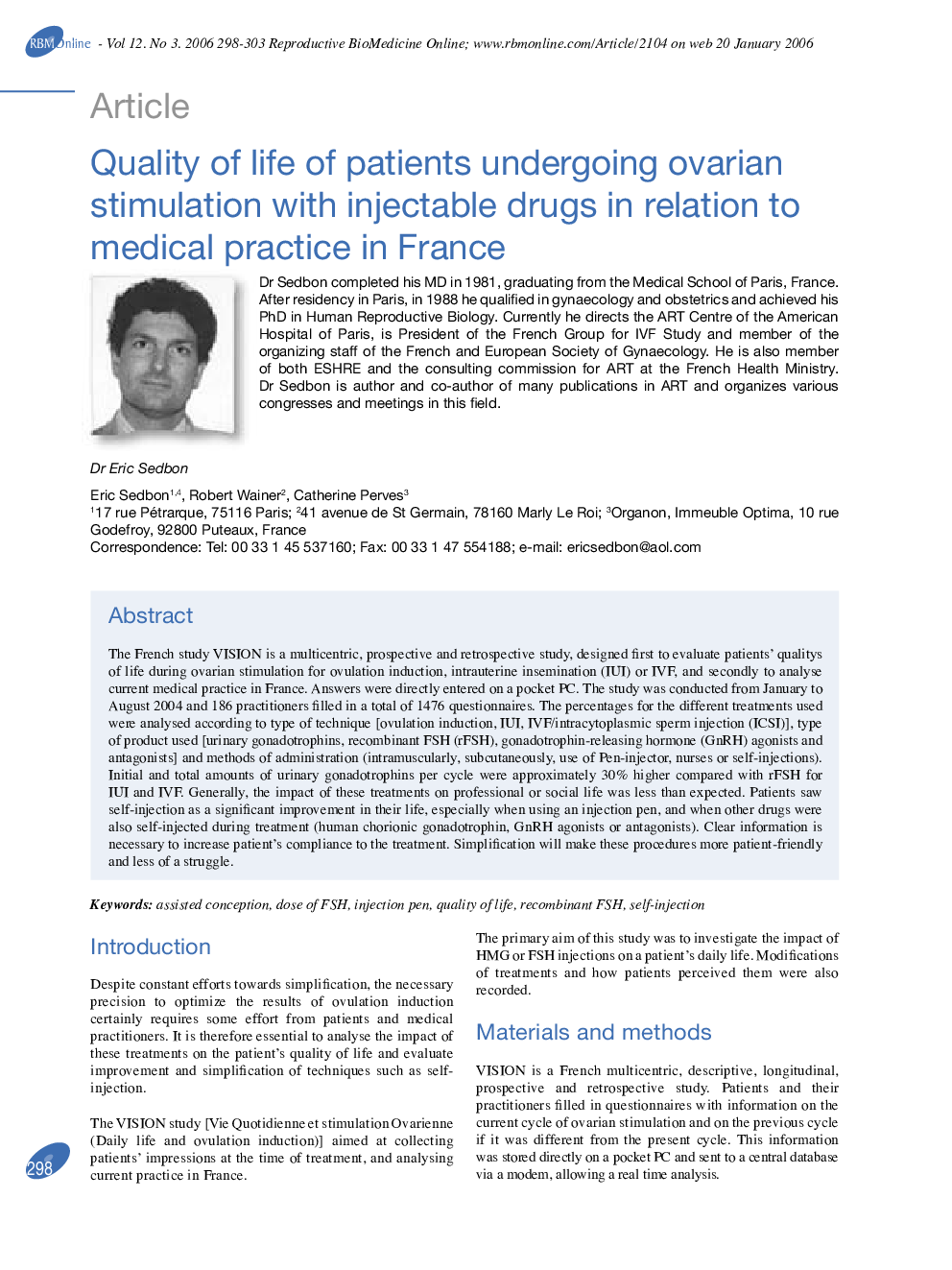| Article ID | Journal | Published Year | Pages | File Type |
|---|---|---|---|---|
| 3973559 | Reproductive BioMedicine Online | 2006 | 6 Pages |
The French study VISION is a multicentric, prospective and retrospective study, designed first to evaluate patients’ qualitys of life during ovarian stimulation for ovulation induction, intrauterine insemination (IUI) or IVF, and secondly to analyse current medical practice in France. Answers were directly entered on a pocket PC. The study was conducted from January to August 2004 and 186 practitioners filled in a total of 1476 questionnaires. The percentages for the different treatments used were analysed according to type of technique [ovulation induction, IUI, IVF/intracytoplasmic sperm injection (ICSI)], type of product used [urinary gonadotrophins, recombinant FSH (rFSH), gonadotrophin-releasing hormone (GnRH) agonists and antagonists] and methods of administration (intramuscularly, subcutaneously, use of Pen-injector, nurses or self-injections). Initial and total amounts of urinary gonadotrophins per cycle were approximately 30% higher compared with rFSH for IUI and IVF. Generally, the impact of these treatments on professional or social life was less than expected. Patients saw self-injection as a significant improvement in their life, especially when using an injection pen, and when other drugs were also self-injected during treatment (human chorionic gonadotrophin, GnRH agonists or antagonists). Clear information is necessary to increase patient's compliance to the treatment. Simplification will make these procedures more patient-friendly and less of a struggle.
